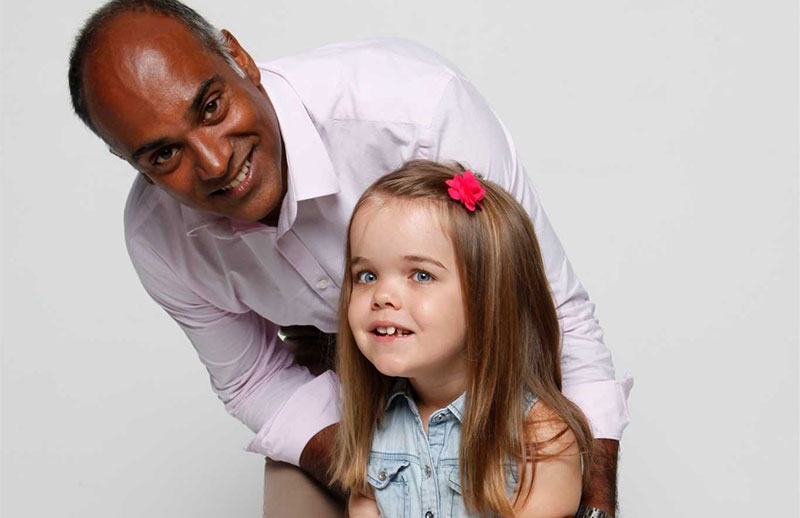
New therapy boosts bone growth in dwarfism
What's the child health challenge?
Achondroplasia is the most common type of dwarfism and affects about one in 25,000 babies born in Australia.
The condition is caused by a fault in a gene that slows bone growth in children’s limbs, spine, and the base of their skull.
Apart from short stature, painful spinal, leg, and hip problems can occur, which may require surgery.
What's the child health challenge?
Achondroplasia is the most common type of dwarfism and affects about one in 25,000 babies born in Australia.
The condition is caused by a fault in a gene that slows bone growth in children’s limbs, spine, and the...
What's the child health challenge?
Achondroplasia is the most common type of dwarfism and affects about one in 25,000 babies born in Australia.
The condition is caused by a fault in a gene that slows bone growth in children’s limbs, spine, and the base of their skull.
Apart from short stature, painful spinal, leg, and hip problems can occur, which may require surgery.
What's the discovery or innovation?
Current treatments address symptoms, but research shows a new drug, vosoritide, containing a natural human protein targets the cause and stimulates bone growth.
An international trial led by the Murdoch Children’s Research Institute found children treated grew an average of 1.57 centimetres per year more than those who received placebo (no treatment), and the therapy boosted bone growth at a rate almost equivalent to that of children of the same age without the condition.
Previous trials confirmed vosoritide was safe to give to children aged five to 18 years with dwarfism.
How is it changing children’s lives?
The drug has an everyday impact on quality of life and social functioning and increases access to environments. Patients treated can now climb trees, jump rocks, and are more independent. We hope it will also improve health outcomes by reducing medical complications and surgery.
Another global trial we are leading in children aged under five may improve height, body proportion, and complications, including an increased risk of sudden death. Plans are underway for vosoritide to go on the market. It could be a daily injection until the end of puberty when growth plates in bones close to finish growing.






